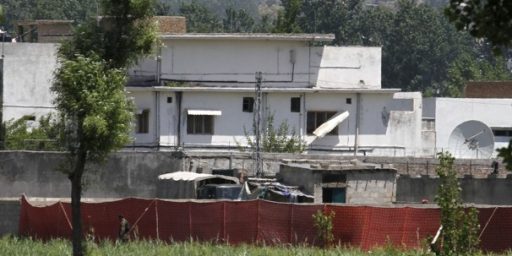DEALING WITH PAKISTAN
Mansoor Ijaz has an excellent discussion of Pakistan’s history as a conduit for nuclear proliferation. His conclusion:
Having come dangerously close to falling under the U.S. definition of a “rogue” state, Pakistan could now become a beacon for how to responsibly deal with rogue elements inside the state without compromising its sovereignty or dealing a blow to an important cornerstone of the national psyche. Other states (Georgia, for example) with nuclear weapons programs that may also be in the market for selling their secrets might take notice and change course.
To emphasize U.S. concerns, the president (and Congress) should condition all U.S. aid to Pakistan on Islamabad’s acceptance of nuclear safekeeping vaults, sensors, alarms, closed-circuit cameras, and other technologies that give Musharraf and his like-minded aides the ability to internally monitor and track Pakistan’s nuclear technologies. Simply excusing leakage as the work of “greedy” individuals with their own agendas, as Pakistan’s foreign ministry spokesman did when the Iranian revelations were made, is neither believable nor an acceptable risk to the safety and security of civilized nations.
Furthermore, a new formula for giving U.S. aid should be devised that is inversely proportional to Pakistan’s spending on military and nuclear budgets. The less Islamabad spends of its national wealth on building nuclear bombs that protect no one, the more America should spend on helping Pakistan build schools and hospitals that educate and protect the masses.
Pakistan has the right to maintain its nuclear arsenal for deterrence against regional threats, and perhaps as importantly, for its national dignity. It does not have the right, whether sanctioned officially or not, to assist in the creation of nuclear monsters that seek Armageddon itself. Nor does it have the right to misappropriate American taxpayer dollars in support of actions by the very elements that seek our death and destruction on their misguided path to eternity.
This seems reasonable enough and, indeed, it’s rather baffling that we aren’t already doing this. One would think all of our international aid would be, at a minimum, contingent on the state in question not doing things overtly dangerous to U.S. security interests.





